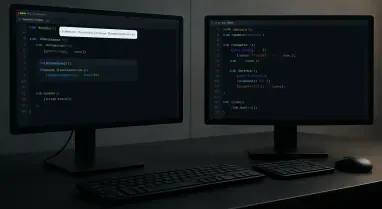In today’s rapidly evolving digital landscape, cybercriminals are leveraging advanced AI-powered cloaking tools to challenge traditional cybersecurity defenses. These tools enable nefarious actors to engage in sophisticated attacks such as phishing and malware distribution, making them increasingly difficult to identify and neutralize. Platforms offering “cloaking-as-a-service,” like Hoax Tech and JS Click Cloaker, exploit machine learning and behavioral targeting to mask malicious content under seemingly benign exteriors, creating a new battleground for cybersecurity experts. Understanding the intricacies of these cloaking methods is crucial for devising effective countermeasures.
The Essentiality of Best Practices in Cybersecurity
Implementing best practices has never been more critical in the fight against AI-enhanced cyber threats. These practices play an integral role in crafting a resilient cybersecurity strategy capable of withstanding the sophisticated tactics employed by modern adversaries. By proactively adopting comprehensive measures, organizations can bolster their security posture, prevent potential data breaches, and enhance operational efficiency. This approach not only saves costs associated with reacting to incidents but also ensures smoother, uninterrupted business operations.
Best Practices for Countering AI-Powered Cloaking Tools
Implementing AI-Powered Defenses
Incorporating AI into the security infrastructure can significantly enhance defense mechanisms against cloaking techniques. AI-driven security solutions offer the agility and intelligence required to detect unusual patterns and anomalies indicative of cloaking activities. Key components such as machine learning algorithms, real-time data analysis, and automated threat assessment improve the overall security response.
To exemplify the successful integration of AI defenses, consider a case study where a prominent organization effectively mitigated cloaking attacks. By deploying an AI-centric security framework, the organization not only anticipated potential threats but also minimized their impact, showcasing the utility of AI in bolstering cybersecurity.
Adopting Zero-Trust Frameworks
The zero-trust security model emerges as a formidable strategy in counteracting cloaking threats by assuming no entity, internal or external, is inherently trustworthy. This approach involves robust identity verification, strict access controls, and continuous monitoring, setting a high bar for security.
A case study from a financial organization highlights the efficacy of zero-trust principles. By implementing this model, the organization fortified its defenses, ensuring any cloaked attempts were scrutinized, ultimately minimizing the risk of unauthorized access and data breaches.
Multi-Perspective Scanning Techniques
Employing diverse scanning methodologies enhances the ability to identify cloaked sites that could otherwise remain undetected. Multi-perspective scanning involves deploying various tools and techniques to cross-verify and authenticate web content, ensuring robust security against deceptive practices.
Consider an organization that effectively reduced the impact of cloaking threats through multi-perspective scanning. By diversifying their scanning approach, they heightened their detection capabilities, ultimately safeguarding their systems from potential cyber intrusions.
Evaluating the Role of AI-Powered Cloaking Tools in Cybersecurity
Throughout the ongoing battle against cyber threats, AI-powered cloaking tools have emerged as a transformative challenge in the cybersecurity domain. These tools underscore the urgency for businesses to integrate cutting-edge defensive strategies to stay ahead. For organizations and individuals contemplating the adoption of novel technologies, selecting comprehensive security frameworks that incorporate AI innovations proves vital. Implementing these advanced strategies ensures that existing defenses can adapt to the evolving nature of cyber threats, fostering a secure digital environment.






